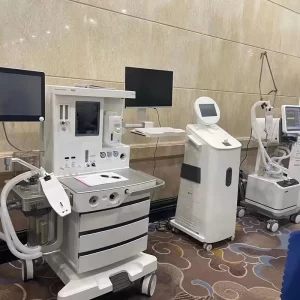Introduction to anesthesia
The word "anesthesia" is fascinating because of its versatility. It can be a noun, such as "anesthesiology," which is profound and professional, or it can be a verb, such as "I will anesthetize you," which sounds gentle and mysterious. Interestingly, it can also become a pronoun, with people affectionately referring to anesthesiologists as "anesthesia." The word is derived from the Greek words "an" and "aesthesis," which means "loss of sensation." Anesthesia, therefore, means a temporary loss of sensation or pain, acting as a guardian angel during surgery.
Medical perspective on anesthesia
From a medical perspective, anesthesia involves the use of drugs or other methods to temporarily remove sensation from part or all of the body to facilitate surgery or other painless medical procedures. It marked an important milestone in medical advancements, making surgery less painful. However, to the public, the terms "anesthesiologist" and "anesthesia technician" often seem to be interchangeable, with both being considered the individual who administers anesthesia. But these names have unique significance to the development of anesthesiology, a field that is only over 150 years old, relatively short in the long history of medical development.

Historical background of anesthesiology
In the early days of anesthesiology, surgeries were relatively primitive and the problems simple, so surgeons often administered anesthesia themselves. As medicine advanced, anesthesia became more specialized. Initially, due to the lack of standardized provision that anyone performing anesthesia could be called a "doctor," many were nurses who transitioned into this role, resulting in a lower professional status.

The modern role of the anesthesiologist
Today, the scope of anesthesiologists' work has expanded significantly to include clinical anesthesia, emergency resuscitation, critical care monitoring, and pain management. Their work is critical to the safety of every surgical patient, underscoring the adage: "There are no minor surgeries, only minor anesthesia." However, the term "anesthesia technician" remains sensitive among anesthesiologists, perhaps Because it harkens back to a time when the industry lacked recognition and standardization. They may feel disrespected or misunderstood when referred to as "anesthesia technicians."
Professional recognition and standards
In reputable hospitals, anesthesiologists are officially called "anaesthesiologists" in recognition of their expertise and status. Hospitals that still use the term "anesthesia technician" may indicate a lack of professionalism and standardization in their medical practice.
at last
Anesthesia plays a vital role in modern medicine, ensuring patient comfort and safety during surgery. It is time to recognize the professional differences between anesthesiologists and anesthesia technicians, which represent progress and specialization in the field. As standards of care continue to evolve, we should also understand and respect the professionals who are dedicated to this critical aspect of health care.